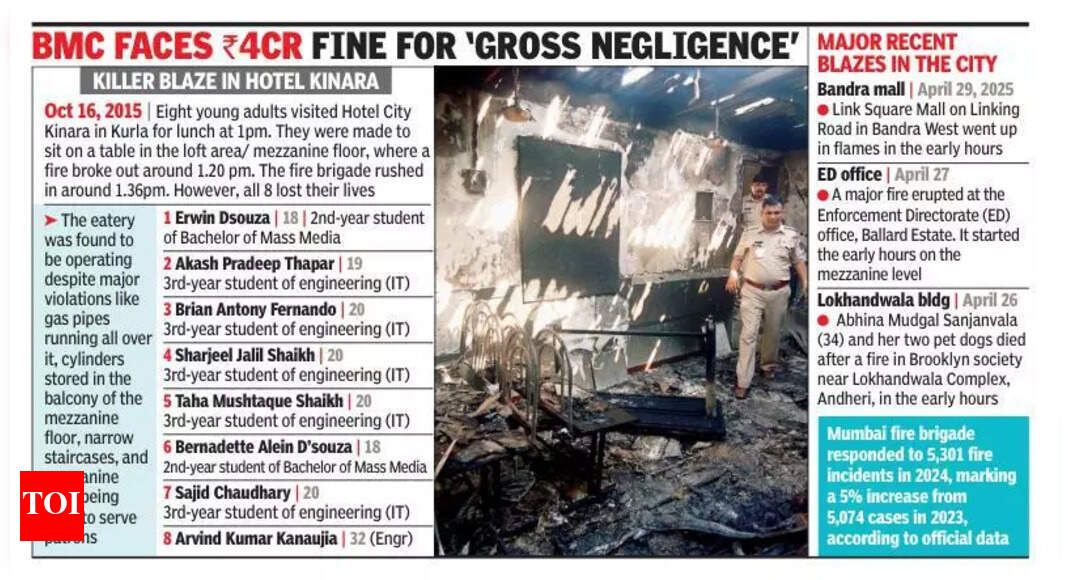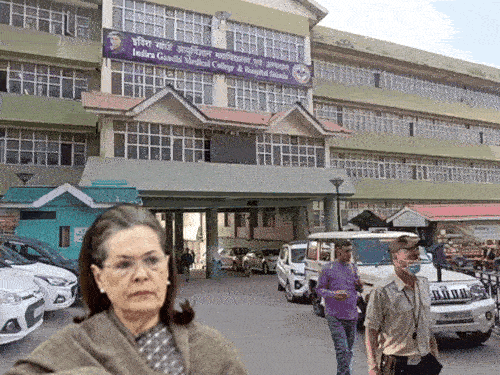Bombay HC Slams BMC for Gross Negligence, Orders 50L Compensation for Hotel Fire Victims’ Families
Bombay High Court Orders BMC to Compensate Families of Hotel Fire Victims – A Decade Later
In a significant ruling, the Bombay High Court recently mandated that the Brihanmumbai Municipal Corporation (BMC) pay ₹50 lakh (approximately $60,000) each to the families of eight victims who died in a tragic fire at Hotel City Kinara in Kurla West, Mumbai, back in 2015. This decision, made nearly a decade after the incident, highlights the pressing issues of fire safety compliance and accountability among municipal authorities.
A Grim Incident: The Fire Unfolds
On October 16, 2015, a fire erupted at the City Kinara hotel at around 1:20 PM. Horrifically, the blaze claimed the lives of eight individuals, including seven students aged between 18 and 20 from the Don Bosco Institute of Technology and a 32-year-old civil engineer.
The judges, Justices Burgess Colabawalla and Firdosh Pooniwalla, expressed their shock over the BMC granting an eating house license to the hotel without ensuring it had the necessary fire No Objection Certificate (NOC) from the fire brigade. Their ruling described the BMC’s actions as "gross negligence," stating that it was an egregious breach of duty not only by the establishment’s owner but also by the municipal corporation.
Judicial Insights: Accountability for Safety Standards
In their detailed judgment, the court emphasized that the BMC had conducted routine inspections of City Kinara, uncovering numerous violations over the years. Inspections carried out in September 2012, March 2013, and September 2015 found that:
- The hotel was operating without a proper fire NOC.
- It used a mezzanine floor for serving patrons instead of for storage.
- The hotel was storing illegal LPG cylinders, posing enormous safety risks.
Moreover, despite being aware of these violations, BMC failed to take necessary action, such as canceling the hotel’s license or prohibiting unsafe practices.
The Justices highlighted that had the BMC fulfilled its responsibilities, the tragedy may have been averted. They stated, “The loss of life of the petitioners’ children/husband, has resulted in violation of their fundamental right to life under Article 21 of the Constitution of India,” underscoring the deep emotional and psychological trauma inflicted upon the families.
Compensation and Legal Proceedings: A Long Road to Justice
The ruling was initiated by a 2018 petition from the victims’ relatives, who sought to overturn a prior decision by the Lokayukta that dismissed their complaint regarding the investigation into the incident. The Lokayukta had previously granted only ₹1 lakh (around $1,200) in compensation per family, which the victims’ families deemed inadequate considering the gravity of the loss.
Now, the High Court’s ruling not only quashed the Lokayukta’s order but also imposed on the BMC the responsibility to compensate the families adequately. The court ordered the compensation to be paid within 12 weeks, failing which interest at a rate of 9% per annum would apply.
Implications for Fire Safety Regulations in India
This ruling sheds light on the critical importance of stringent fire safety regulations in establishments, especially those that accommodate the public. It serves as a stark reminder of the devastating consequences of neglecting safety protocols. The case emphasizes a few key takeaway lessons:
- Institutional Accountability: Municipal bodies play a crucial role in ensuring public safety, and negligence cannot go unpunished.
- Regular Inspections: Regular and thorough inspections can prevent tragedies like the Hotel City Kinara fire from occurring in the first place.
- Victim Support: Adequate compensation for victims’ families is essential to mitigate their suffering and provide some semblance of justice.
Looking Ahead: Change Required
This case is critical in highlighting the need for systemic change in how fire safety regulations are enforced in India. With increasing urbanization and construction of new establishments, ensuring compliance with safety norms must be a priority for municipal corporations. This incident and its subsequent rulings can hopefully pave the way for more robust safety standards and accountability, ensuring that such tragic events are not repeated.
As we reflect on this ruling, it becomes evident that the victims’ families not only seek justice but also a safer future for everyone who frequents public spaces. The court’s decision, while a step toward accountability, opens up broader discussions about the responsibility of local authorities in safeguarding citizens’ lives and well-being.






